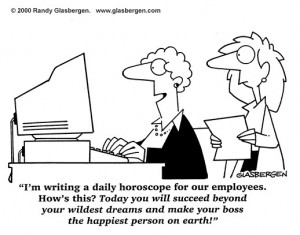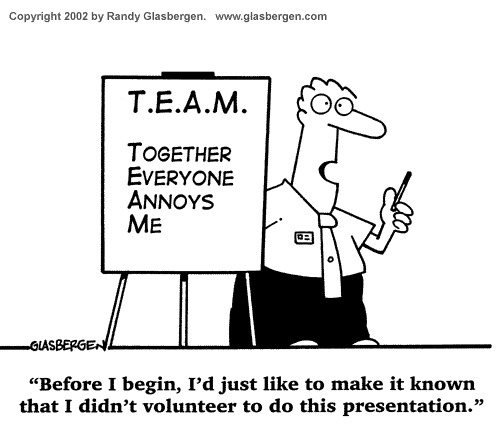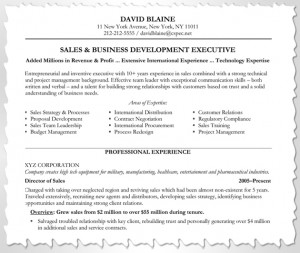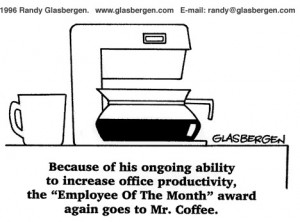I assessed a resume today of a job seeker focused on the past and not the present. The candidate came from a very good school and had an excellent track record. Below is an outline the information in the resume, with identifying information omitted:
I assessed a resume today of a job seeker focused on the past and not the present. The candidate came from a very good school and had an excellent track record. Below is an outline the information in the resume, with identifying information omitted:
Professional Profile
-
10+ years of leadership experience
-
Graduate of <a really good school> and 4 year NCAA Div. 1 varsity football athlete
-
Proven track record of delivering successful results
-
Broad experience conducting presentations to individuals at all levels of organizations
-
Extensive knowledge of <list of industries>
-
Practical experience with <list of skills>
Work Experience
2001-Present
Sales Representative
<Company Name>
<details of position omitted>
1997 to 2001
Progression of positions with increasing leadership responsibility
<Company Name>
<details of position omitted>
Education
University
City, State
Degree
1996
Activities
<list of hobbies and volunteer work>
The problem with this resume is in the Professional Profile. After twelve years in his career, playing football in college is the second most important element of the resume. I'm a big football fan and have incredible respect for the athleticism and work ethic required to balance the workload a Division 1 football team and the academics of a top tier school. This is impressive, but presenting it at the top of the resume may do more harm than good.
By listing the football career at the top, the job seeker raises the question of whether he has been successful in his career. If he was successful over the last twelve years, why isn't his success in his career at the top of the resume? Hiring managers look for a track record of success building throughout the career.
After reading the the Professional Profile section, the job seeker appears to have some good experience, graduated from a good school but emphasizes football over his career. This isn't enough to reject the candidate at this point, but does raise some doubts.
The work experience section is good. The experiences and skills of the candidate make a good impression, but there is nothing overwhelming. The candidate lists a few accomplishments and awards, but fails to qualify these. It is difficult to assess how impressive the accomplishments are. This leaves the interpretation of the resume to the feeling of the reader.
After the work experience, the candidate presents his education. As I mentioned above, the candidate graduated from a top tier school with an impressive degree.
The resume concludes with an Activities section. In this section, the job seeker lists some volunteer work and several positions coaching football. Ending with football reinforces the emphasis on football at the top of the resume and detracts from presentation of the candidate's career. No matter what the job seeker did in his career, by bracketing his resume with his participation in football at the top and bottom, the candidate leads the reader to focus their attention on football and not the professional qualifications.
To improve the resume, I would change three things. First, I would move the information on playing division 1 football to the education section. Playing Division 1 football demonstrates several good qualities. Including this on the resume is beneficial, but is much better placed at the bottom and not the top. Second, I would drop the listing of the activities. The volunteer work and football coaching do little to reinforce the capability of the job seeker. Third, I would provide more detail to a few of the accomplishments within the work experience section. An accomplishment is most impressive when the role of the job seeker, the scope of the situation, the actions taken and the results achieved are clearly presented. The examples given in the resume only show vague results, with nothing about how they were achieved.
Making these three changes will provide a much more compelling presentation. On your resume, make sure you are emphasizing the information that will be most impressive to a hiring manager. Many job seekers emphasize the details they are most proud of. Unfortunately, these details may not provide the best sales pitch for the candidate. Focus on the elements of your background that are most closely related to the requirements of the job you are seeking.
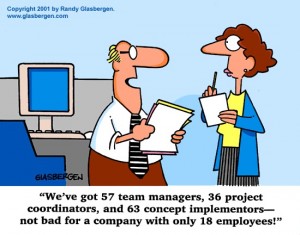
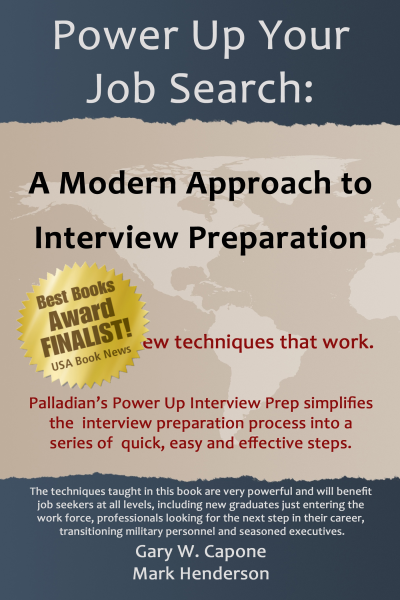


![Fotolia_118013_XS[1]](https://blog.palladiancr.com/wp-content/uploads/2009/03/Fotolia_118013_XS1.jpg)
